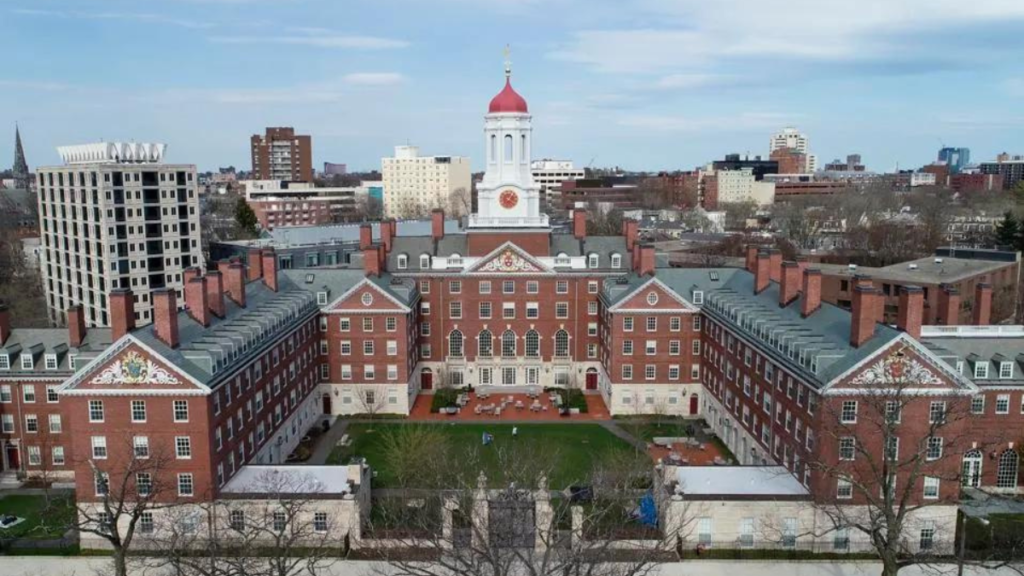Harvard University’s legacy admissions policy, which favors alumni relatives, has been a subject of controversy due to its potential to perpetuate inequality. The policy, which favors wealthier and predominantly white students, has been questioned by minority students, who fear that the removal of affirmative action and the continuation of legacy admissions might make them feel undeserving of their place at Harvard. Harvard awards points to “ALDC” candidates, including legacy applicants, athletes, donors, and faculty or staff. Despite constituting only 5% of applicants, these students make up about a third of acceptances, with 70% being white. Legacy students attending “Ivy Plus” colleges are 60% more likely to earn in the top 1% and three times more likely to work in prestigious fields compared to their counterparts from “flagship” public universities. Critics argue that Harvard’s deep pockets, boasting the world’s largest university endowment at $50 billion, are maintaining the status quo. The university is currently under a civil-rights probe by the US Department of Education, responding to a lawsuit alleging preferential treatment for white, wealthy students through prioritizing legacy and donor applicants.
The Legacy Admissions Controversy
Harvard’s legacy admissions policy, common among elite American universities, has come under fire for allegedly allowing some applicants to skip the admissions queue. The practice favors individuals with familial ties to the university, raising concerns about perpetuating privilege and social inequality.
Affirmative Action and Legacy Admissions
The dismantling of affirmative action earlier this year by the Supreme Court highlighted Harvard’s practice of giving preference to the children of alumni. While affirmative action aimed to address historical disparities, its removal shifted the focus to other admission practices. Legacy admissions, which tend to benefit wealthier and predominantly white students, drew attention as a potential source of inequality.
Impact on Minority Students
Harvard’s commitment to diversity is being questioned as legacy admissions tend to favor wealthier and predominantly white applicants. Students like Donyae Jenkins express concern that the removal of affirmative action and the continuation of legacy admissions might make minority students feel undeserving of their place at Harvard.
Data Unveils Disparities
Documents filed in the Supreme Court case revealed that Harvard awards points to “ALDC” candidates—legacy applicants, athletes, relatives of donors, and children of faculty or staff. Despite constituting only 5% of applicants, ALDC students make up approximately a third of acceptances, with about 70% of them being white. A study by Opportunity Insights found that legacy applicants were four times as likely as non-legacy applicants with similar test scores to be admitted.
The Socioeconomic Impact
Legacy admissions act as a catapult into the upper echelons of society for those who benefit from the practice. Opportunity Insights’ research indicates that legacy students attending “Ivy Plus” colleges are 60% more likely to earn in the top 1% and three times more likely to work in prestigious fields compared to their counterparts from “flagship” public universities.
Historical Roots and Defense of Legacy Admissions
Legacy admissions trace their roots back to the early 20th century when universities aimed to maintain exclusivity. While Harvard has evolved over time and committed to diversity, it defends the practice, stating that it helps strengthen bonds with alumni, fostering lifelong engagement. The school argues that alumni support, facilitated by legacy admissions, contributes significantly to financial aid, supporting diversity and excellence.
Calls for Reform
Harvard’s deep pockets, boasting the world’s largest university endowment at $50 billion, have come under scrutiny. Critics argue that the university, instead of using its power to create a better society, is maintaining the status quo. Boston’s state legislature is considering a bill to impose fees on schools granting legacy admissions benefits, challenging the notion of meritocracy.
Legal Challenges and Investigations
Harvard is currently the subject of a civil-rights probe by the US Department of Education, responding to a lawsuit alleging preferential treatment for white, wealthy students through prioritizing legacy and donor applicants. This has intensified the debate around the fairness and legality of legacy admissions.
Changing Tides
Some elite institutions like Wesleyan University and Amherst College have already discontinued legacy admissions. Harvard University President Claudine Gay acknowledges the need for a comprehensive conversation about the admissions process in the aftermath of the Supreme Court’s decision on affirmative action.
Conclusion
Harvard University finds itself at a crossroads as the controversy surrounding legacy admissions unfolds. The debate goes beyond the university’s admissions policies; it questions the broader societal implications of perpetuating privilege. As calls for reform gain momentum, Harvard faces challenges to its traditional practices, prompting a reevaluation of how elite institutions shape the future of America.







